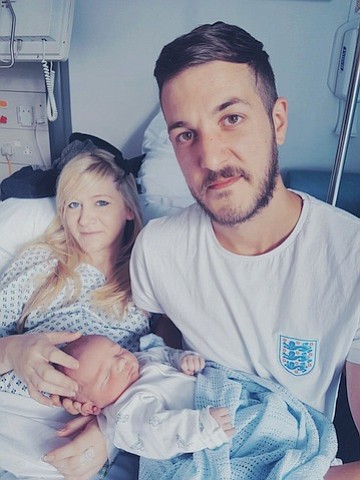Baby Charlie's New Day in Court
CNN/Stylemagazine.com Newswire | 7/10/2017, 10:30 a.m.

By Hilary Clarke
LONDON (CNN) -- A court in London will again hear the case of baby Charlie Gard, whose parents are fighting doctors to keep him on life support so they can take him to the US for experimental therapy.
The UK's High Court will hear new evidence Monday.
The terminally ill 11-month-old is currently being cared for at Great Ormond Street Hospital (GOSH) in London, who requested the new hearing last week. He's been there since October when he began suffering the effects of the rare genetic disease, mitochondrial DNA depletion syndrome.
Little Charlie's parents' legal battle with doctors to prolong their child's life has gained international attention with Pope Francis and US President Donald Trump among those to have weighed in on the debate.
Mother Connie Yates and father Chris Gard say they are determined to continue their fight for their son to have an experimental nucleoside therapy, which is available in the US but not in the UK.
On Sunday the couple handed a petition with more than 350,000 signatures from around the world to GOSH. It called for the family to be allowed to travel to receive the experimental treatment, something currently blocked by a High Court ruling issued on June 30.
That ruling was preceded by a series of legal attempts by the young couple who have tried to make their cases to judges in the High Court, Court of Appeal and Supreme Court in London. The hospital has countered that it's in Charlie's best interest to be removed from life support as none of the treatments are certain to help him and could cause him to suffer.
Professor Neena Modi, President of the Royal College of Paediatrics and Child Health said Monday the high-profile interventions in the case are "unhelpful".
"Only the family, the doctors treating Charlie, and now the legal teams involved, know the details of complex issues that define his situation." she said in a statement.
"These issues - unknown to us and all those voicing opinions - will have been considered very carefully in reaching any decision. This is why interventions by external agencies or individuals, no matter how well-intended, are unhelpful".
Charlie has an extremely rare degenerative condition called mitochondrial DNA depletion syndrome. His doctors in Britain argue he has no hope of surviving without assistance and that he should be allowed to die in dignity.







